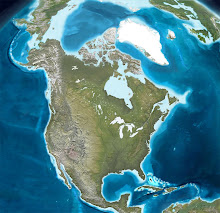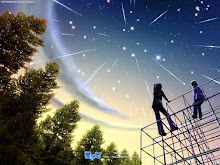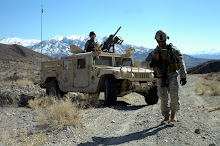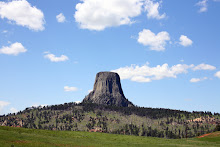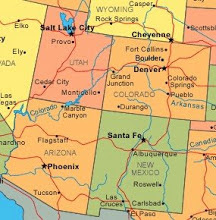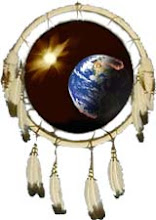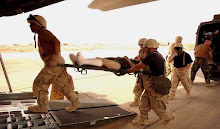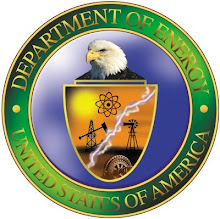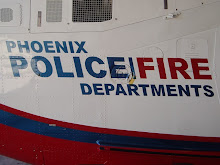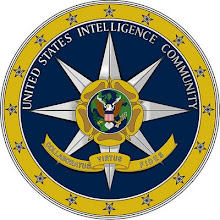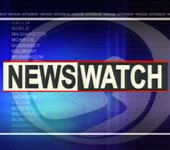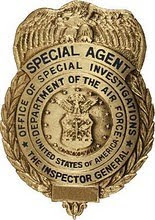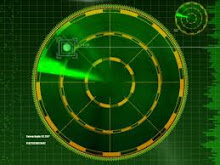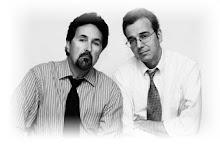By Steve Hammons
According to a CNN report April 20, 2009, former astronaut Edgar Mitchell, ScD, PhD, told an audience at the National Press Club in Washington, D.C., that the basic story of a 1947 UFO crash in Roswell, New Mexico, is true. That is, the craft found and recovered was extraterrestrial and involved intelligent beings from elsewhere.
Mitchell was an astronaut on the Apollo 14 mission to the moon in 1971 and he spoke at the National Press Club after the fifth annual X-Conference, an event focused on research involving UFOs.
CNN reported that Mitchell told journalists that there is firm knowledge that extraterrestrial life exists and this information is being held back from the general public in the U.S. and internationally.
Mitchell was raised in Roswell and knew many of the townspeople there. He said they confided to him years later about what they knew, although they had been told to keep the information quiet.
In addition, Mitchell said that about 10 years ago a Navy admiral working for the Joint Chiefs of Staff confirmed to him that a UFO had crashed at Roswell.
Citing the existence of evidence, Mitchell stated, “No, we're not alone.”
ROSWELL AND SECURITY
Mitchell’s statements are not surprising to many researchers and average citizens. Other people might find Mitchell’s comments unsettling because there is also a natural skepticism about claims of UFOs and visitation to Earth by beings from other planets (and/or dimensions).
Claims of this kind coming from a respected and highly-trained person like Mitchell are not easily dismissed.
Information about an alleged crash of a spacecraft piloted by intelligent beings has been around for decades. Books, articles, movies and TV shows have told the story.
However, thinking about the possible reality of such a situation leads to many other questions: What else has happened in the area of UFOs? Have we made contact with other civilizations visiting our planet? Are they friend or foe? Can they help us solve some of the problems of the human race? Why has there been so much secrecy?
In the many accounts and tales about the Roswell incident, it is often noted that in the summer of 1947 the U.S. had just ended a devastating period during World War II. Military secrecy and security had been of the utmost importance during the war.
Some of the first people to learn about the Roswell crash were Army Air Corps (forerunner of the U.S. Air Force) personnel from the nearby Roswell Army Air Field (RAAF), including base intelligence officers.
Despite an intriguing press release that was issued to the media by the RAAF public information officer about a flying saucer being obtained by base officials, higher command quickly dismissed the story as a case of mistaken identity – the debris found was actually a weather balloon-type device, news reporters were told.
Behind the scenes of such a scenario, it would be logical to consider that the Truman administration, Pentagon and intelligence officials would have been shocked and concerned, both about the incident itself and the psychological, emotional and social ramifications for Americans.
ACCLIMATION THEN AND NOW
Are we any more psychologically prepared today than in 1947? Mitchell seems to think so. And so do many other researchers.
Despite the perceived need for robust security reportedly involved in the Roswell incident and subsequent developments, some researchers say that the American public has slowly and steadily received “acclimation” to get used to the idea of extraterrestrial visitors.
Some of this acclimation has allegedly been through the entertainment media and in fictional form as well as the management of information carefully released in indirect ways to the public.
American kids raised on TV and movies since the 1950s have become used to the idea of extraterrestrials coming to Earth. Of course, a real-life situation takes exciting movie adventures to another level and could naturally cause anxiety.
We humans don’t have a great track record getting along with each other, let alone extraterrestrial beings who might be quite different from ourselves.
In addition to strange visitors, the situation could be quite complex. Our understanding of science and Nature, the Universe, spirituality and even the human race itself could be given quite a shock.
If Mitchell is accurate in his statements, then certainly much has been learned since 1947 by people who have been given the task of handling such an important and complex situation. How much information is the public able to understand and accept? Is it good news or bad news, or a mixture of both?
If the Roswell incident was real, as Mitchell claims, what has been going on since that time related to extraterrestrial visitors? Were some of the security measures, scientific research and other activities questionable – either by human officials or visitors?
One thing seems clear, Mitchell has moved the ball forward on acclimation of our society and people internationally about the possibility, or probability, that the human race and Earth are being visited from elsewhere and that we need to prepare ourselves.
skip to main |
skip to sidebar

In the past 30 days, readers from approximately 40 countries or territories using about 20 languages visited the Joint Recon Study Group site.

To see more articles, scroll down the right-side column.

Steve Hammons

Articles from the Joint Recon Study Group site and Transcendent TV & Media site are included.
The Joint Reconnaissance Study Group is the San Diego-based, combined-service/agency, research-and-activities team in my novels "Mission Into Light" and sequel "Light's Hand." This site contains information of interest to the JRSG.
Home page: Joint Recon Study Group site
Readers from around the world visit this site.

In the past 30 days, readers from approximately 40 countries or territories using about 20 languages visited the Joint Recon Study Group site.
April 2021 threat alert: ‘Force protection’ for our troops now the responsibility of all Americans
First responders must deal with society’s problems, shortcomings, injustices every day
Could some UFOs be linked to Native American 'white stone canoe' legends, stories?
Wildland firefighter basic training available at community colleges, tech schools, training centers
‘Boomer remover’ coronavirus is bigger threat to WWII generation that saved the world
‘Black swan’ events that aren’t: Coronavirus, climate emergency, unidentified aerial phenonema
Reagan’s complete 1987 UN message on ‘alien threat’ overlooked: Grave danger here, now
Was Reagan briefed about UFOs and original ‘Day the Earth Stood Still’ movie?
My military draft lottery number was #165 during final Vietnam War years
“Keep On The Sunny Side,” by The Whites, from movie O Brother, Where Art Thou?”
Living along Ohio River for centuries, Native Shawnee called it ‘Kiskepila Sepe’ – ‘Eagle River’
Native American words around us: States, towns, rivers, lakes, terrain, plants, animals, military
Athens County, Ohio, was key spot when colonists, Redcoats fought Shawnee in 1774 battle
1787 Northwest Ordinance set course for Ohio, Indiana, Illinois, Michigan, Wisconsin, Minnesota
Smallpox-tainted blankets were 1763 bioweapon on northern Appalachian Mountains frontier
Diana Krall performs “Maybe You’ll Be There" live in Paris with Paris Symphony Orchestra 2001.
Books to read in 2021? Novels "Mission Into Light" and the sequel "Light's Hand"
Novel excerpt: Renew, prepare America with ‘Urgent Response Group’ for teens, young adults
Diana Krall performs “I Get Along” live in Paris with Paris Symphony Orchestra 2001.
Steve Tyrell sings “Give Me the Simple Life.”
Diana Krall performs “Love Letters” live in Paris with Paris Symphony Orchestra 2001.
Visit the article archives!

To see more articles, scroll down the right-side column.
Novel "Mission Into Light" overview on Amazon
Novel "Light's Hand" overview on Amazon
Adventures of the Joint Recon Study Group: Overview and synopses of activities and operations
Key chapter overviews: Points of interest in the novel "Mission Into Light"
Key chapter overviews: Points of interest in the novel "Light's Hand"
Multimedia rights available
English and foreign-language book rights, audio book and e-book rights for "Mission Into Light" and "Light's Hand" are available. Movie and TV rights are available.
I'm seeking agent representation for these works and rights.
Please contact Steve Hammons for more information at hammons55@gmail.com.
Feature film screenplay
I completed a feature film screenplay in 2006 based on “Mission Into Light” and “Light’s Hand” combining key elements of both novels.
The screenplay takes audiences into the adventures and discoveries of the Joint Recon Study Group and the relationships among team members, friends and associates as they explore leading-edge research and emerging transcendent developments.
I'm seeking agent representation for this screenplay.
.........................
I also wrote a TV series pilot script based on "Mission Into Light" and "Light's Hand" story. I'm seeking agent representation this script.
About the Author

Steve Hammons
About the Author
I was born and raised in southwestern Ohio near the Kentucky and Indiana borders, then went to college at Ohio University in the southeastern Appalachian region of the state near West Virginia.
I graduated with a dual major in communication (journalism focus) and health education (psychology focus) with a minor in pre-law.
Ohio U. is home to the respected Scripps College of Communication and E.W. Scripps School of Journalism.
I also completed two graduate-level courses in guidance counseling theory and method at Ohio U.'s College of Education, School of Applied Behavioral Sciences and Educational Leadership.
At the end of my undergraduate education at Ohio University, I moved to the beautiful American Southwest where I applied my education, continual training and and ongoing experience to related professional fields such as health care, journalism and special research areas.
My novels "Mission Into Light" and the sequel "Light’s Hand" are available in e-book and 6"x9" paperback from most online booksellers worldwide.
Readers review metaphysical-military-intelligence adventure novel ‘Mission Into Light’
My articles on DoD CultureReady blog, Defense Language and National Security Education Office
Transcendent TV & Media site
Past articles: Scroll down the right-side column for more articles.

Articles from the Joint Recon Study Group site and Transcendent TV & Media site are included.




























